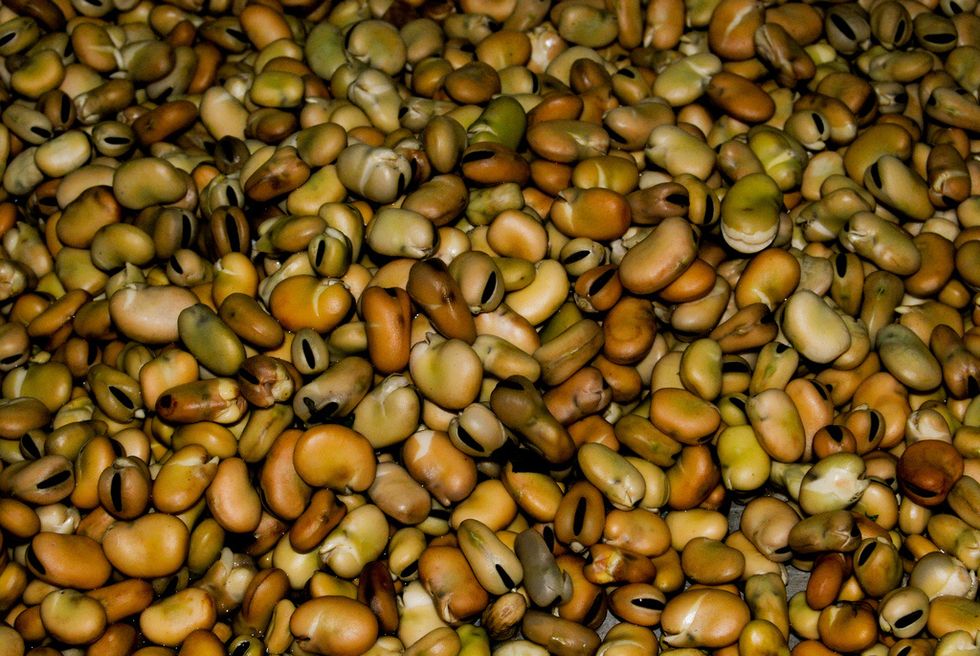One of the first questions I get when people find out I follow a plant-based diet is "where do you get your protein from?". As someone who lifts heavy in the gym and is actively building muscle, require a higher protein intake than most girls my age. How do I make this happen? Simple. Contrary to popular belief, protein isn't just a meat sanctioned nutrient. In fact, protein can come from many different places, especially within a plant-based diet.
First and simplest answer when it comes to finding protein is supplementing. Many companies sell plant-based protein typically made from pea protein, some offer in soy protein. This is something that I like to add to my diet as I live a very active lifestyle. Even this is not necessary to obtain your daily required intake, a well-balanced diet can take care of that.
The number one protein-packed food that plant-based diets can eat is tempeh. Tempeh, similar to tofu, is a soy-based food made from the fermentation of soybeans into a block form. Most people hear 'tofu' and get grossed out, but fear not, tempeh tastes nothing like tofu and holds a much firmer texture. Tempeh can be made into many dishes and substitute a lot of foods that consist of 'meat'. In this same category edamame (soybeans) and tofu are also great sources.
Coming in second is your beans and legumes, with lentils and chickpeas taking the lead. These can be added into many different dishes such as soups, salads, pastas, or even eaten as a separate side. Hummus, which is made from chickpeas, can be used as a protein-packed substitute for butter or put inside wraps and sandwiches.
Next option for adding protein into your diet would be nuts. There are a large variety of nut options such as almonds, cashews, walnuts, pecans, peanuts, brazil nuts, and the list goes on. These can be added to salads or even just eaten in handfuls throughout the day. This is a very easy yet efficient way to sneak some extra protein in throughout your day. Within this category is included nut butters, peanut butter, cashew butter, almond butter, and this list equally goes on. Nut butters can be consumed in many ways, within sandwiches, on toast, in a smoothie, dipping sauces for fruits, as a topping for oatmeal, or even just spooned right out of the jar!
Allergic to nuts? No worries, our next protein-packed option is quinoa! Quinoa is a grain which also contains many other beneficial nutrients. Quinoa can be added to many dishes, in soups or stews, a substitute for pasta or rice, or even eaten as a main course.
Another quick option is seeds, such as hemp or chia seeds. These are both high in protein and easy to add to many different things. Chia seeds can be mixed with coconut milk as refrigerated for a protein-packed treat. Seeds can also be added into salads, as toppings for oatmeal, in smoothies, and sprinkled onto many other things to give you that extra boost.
The last foods high in protein are actually many vegetables, kale, mushrooms, and spinach all offer protein and can be good additions to your meals to boost your intake. Although these do not provide adequate protein on their own, they are easy to eat within a meal or snack on throughout the day.
There are many other foods that people don't realize provide enough protein to sustain a daily living and even an active lifestyle. These are just a few good sources that can ensure you are properly fueled and meeting your nutrient requirements. So if your only reasoning for not following a plant-based diet was the fear of protein deficiency, problem solved.






 The minimum wage is not a living wage.
StableDiffusion
The minimum wage is not a living wage.
StableDiffusion
 influential nations
StableDiffusion
influential nations
StableDiffusion












